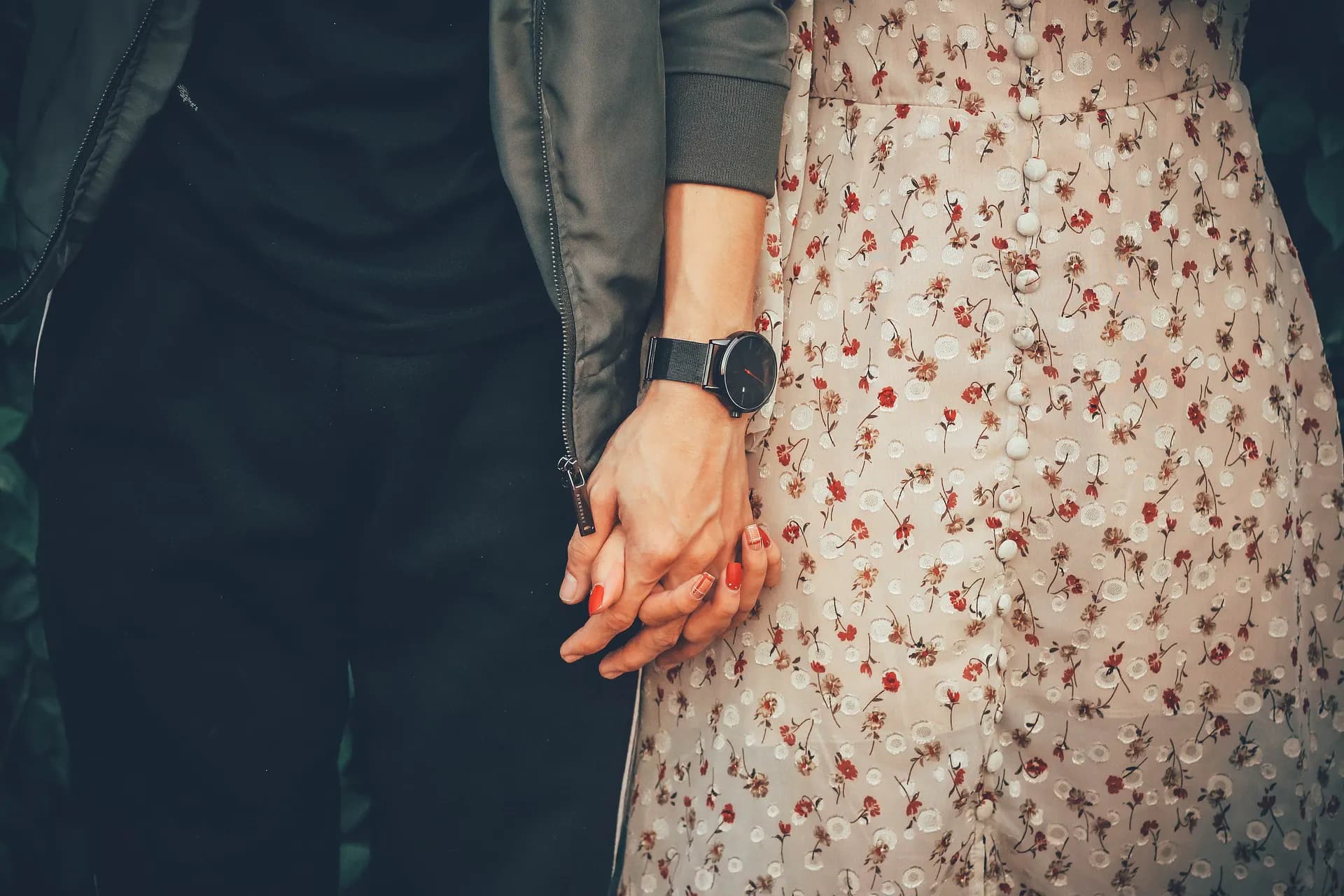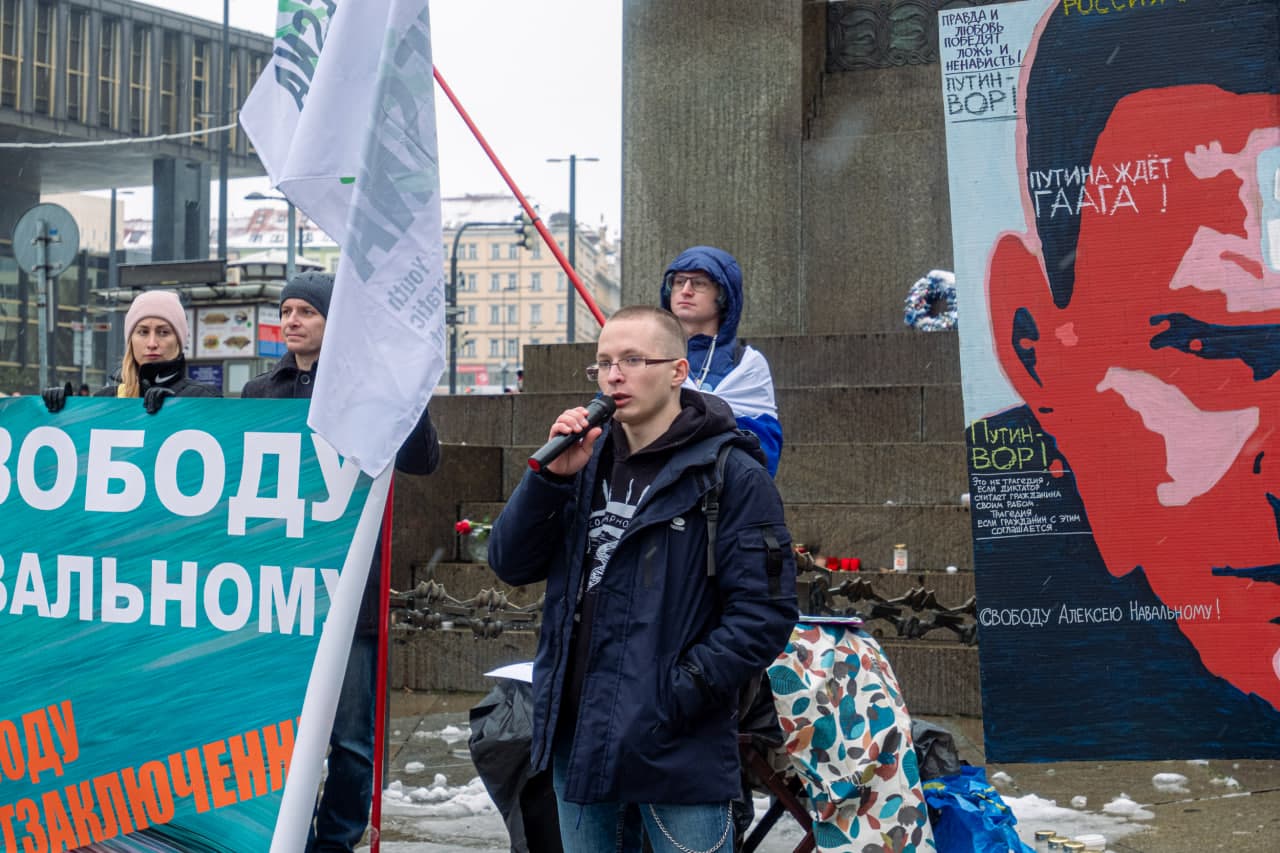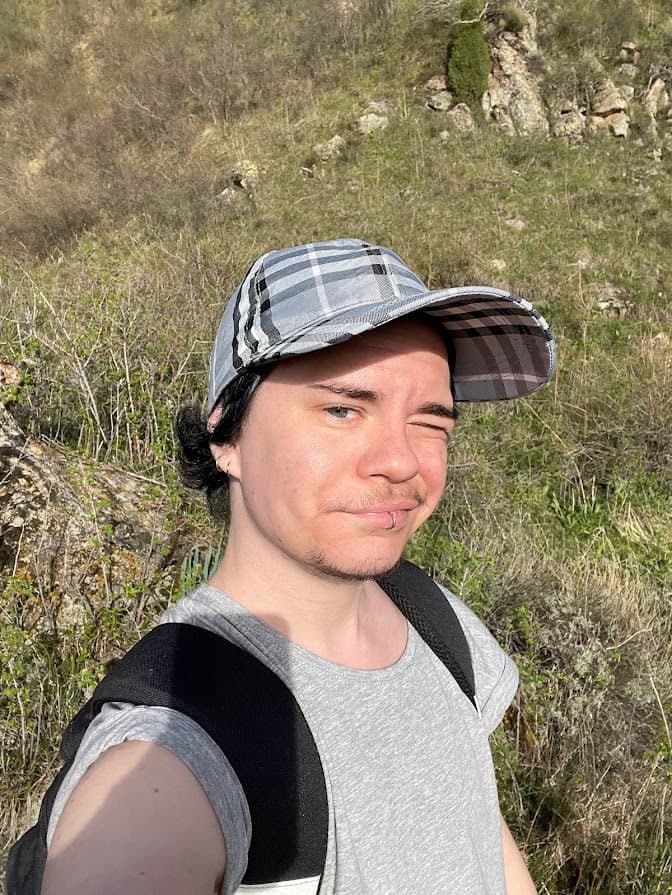Katya and Dima
...No one could ever imagine that literally tomorrow you would have to turn your life around 180 degrees and leave for a foreign country.


Tell us a little about yourself. What do you do?
Hello! My name is Stas, I am from Novosibirsk. I’m 18 years old, I like learning languages, cultures of different countries and nations, I prefer to spend my free time with books. In the future I’d like to become a foreign language teacher and open my own language school.
Tell us about your life before the war. How did your life change when the war started?
Even before the war, one couldn't call my life peaceful, and certainly not afterwards. The thing is, I’m gay, and the whole situation regarding the rights of LGBTQ+ people has been developing extremely tough and stressful throughout my adult life. I remember a series of murders of LGBTQ+ people and activists back in 2019, I remember the HBO documentary “Welcome to Chechnya”, the activity of a gay-hunting organisation called “Saw” and so on. However, with the start of Russia's full-scale invasion of Ukraine, the situation worsened. First of all, it all affected my mental health: depressive thoughts, fear of the future, constant shame and desire to repent, feelings of abandonment, rejection and even contempt from both the state and society at large. In order to somehow keep things under control, I’ve been taking antidepressants for the last year. Moreover, the war has also ripped masks off people’s faces showing their true identities. I was in the tenth grade (the second half of 2021) when I transferred to another school with a more humanitarian focus. As usual, male classmates proved to be more homophobic and intolerant than the female side of the class. Actually, I always imagined that women were much more progressive in their views than men, and thus I felt more confident communicating with women rather than with men.. But just after February 24, everything was turned upside down. The girls I knew (not my friends!) had done a complete flip-flop and turned into patriotic bigots. As for the boys, a great number of them had gone just crazy about the whole war stuff: they shouted pro-Putin slogans in class (not constantly, but often), said that “the Khohols (a disapproving term for Ukrainians) should be killed” and other awful things. Speaking of me, I was given various offensive nicknames, such as “Biden prostitute” and “Ukronazi”. One girl even complained to the homeroom teacher about my “anti-Russian beliefs”. Thank God, the teacher was a sensible and wise woman and we just laughed it off. On the whole, I began to exist outside the school community. They were at odds with me, and I was at odds with them.
What were your plans, your dreams? How did they change with the outbreak of war?
Just before this whole Putin’s madness, I had a vague, but tangible outline of my future life. When I was 16 I began to learn Czech, hoping that I would get to study in Prague or Brno someday. I thought that if things didn't work out in the Czech Republic, I would go to Estonia or Ukraine (I really wanted to go to Lviv!). And after the war broke out, my dreams were broken into pieces and my future lost its predictability and tangibility. Every day all kinds of atrocities are happening, the Iron Curtain is getting more tangible and people are getting more bloodthirsty.
How did people around you react to the war?
People close to me reacted with shock and rejection of what was happening. There was a sense of unreality about what was happening. No one close to me or anyone I knew could believe for another two months that what was happening was real. And then there was a lack of understanding of what was going to happen tomorrow, a fear of nuclear war.
Do you have friends, relatives, colleagues in Ukraine? How did the war affect them? Have they been directly affected by the hostilities? How has the war affected your relationships?
I have Ukrainian roots, but I have neither friends and acquaintances, nor relatives there: connections have been lost as a result of Stalin's repressions.
Are you or your family and friends affected by militarisation?
The topic of militarisation and the ludicrous stupidity of Z-patriotism has touched me indirectly. I cannot and will never be able to get used to these Z-stickers all over the city (it’s quite ironic to notice them on the windows of decrepit and merely-able-to-ride public transport), to the banners saying “Glory to Russia”, “Support the President”, “Call oV ancestorZ” etc., pins with the emblem of PMC Wagner in magazine stalls, the windows of foreign cars which are mutilated along and across with cringey quotations, like “Power iZ the Truth”, etc. Sometimes I'm walking down the street, enjoying the music in my headphones, the green foliage, the breeze, and then bam!—a whole cavalcade of NLMs vehicles (National Liberation Movement) passes by with a ridiculous ideological vinaigrette: the tricolor and the nationalist black-yellow-white flag are next to the sickle and hammer, and Lenin portraits are next to icons... It's impossible not to smile hysterically when you see it.
Have you tried to protest against stricter laws against the background of the war?
I protested in all the ways that were available and safe for me. First of all there were leaflets. I drew them myself or printed already existing templates from Vesna (a youth democratic movement). I pasted them up in different locations: bus stops, parks’ benches, or just laid them out on a pavement. I also ripped some Z-stickers off the entrance of my house, created an anti-war account on Instagram, and constantly talked about the war, trying to change the minds of people around me (my classmates). My partisan activities took place from March to October of 2022. Later, I realised that everything I’d done before was worthless. In society, everyone either doesn’t care, or they support it. I think there are five to ten percent of us dissenters (I sincerely hope this is my pessimism talking, and the reality is brighter).
How have you and your family been affected by the tightening of the screws in Russia (restrictions on freedom of gathering, blasphemy law, laws on LGBT, censorship)?
All of us, both my family and friends, are uncomfortable with these laws, to say the least. It is frightening to watch how Russia is entering another era of obscurantism and oprichnina, and the vast majority of people of all ages, firmly convinced that all this is being done for good purposes.
Have you experienced discrimination, intolerance from society and the state? In what way was it expressed?
Yes, quite a lot. I did face queerphobia both at school and in other public places. Mostly it was just some kind of shouting, whispering. At school they threw rubbish at me, threw me in the dirt, pushed me around all the time. I remember in sixth grade, as I was walking down the school corridor, I started being pushed from side to side by older students, making homophobic shouts. In seventh to eighth grade, they threw rubbish at my back, threw dirt at me. In general, I experienced a lot of homophobic bullying.
What values and political views does your family hold? Where do you usually get the information from?
It's a good question about values. My social circle is small. I think those who are part of it could be described as people who share liberal values, because in many ways our views are the same. My mother is the only family member who shares my views, the rest of my relatives just prefer not to pay attention to the madness going on, and not to think about the bitter price our country is going to pay over the next few decades. I can say one thing: everyone is against Putin's policies and this bloodbath he has launched.
You are in Russia now. Have you ever felt like leaving?
I have only stayed in Russia because I was still a school student and underage. Now I’m already 18. I’m planning to go to university, and after (or maybe earlier, depending on the situation in the country), I will go wherever I can, just to get away from Russia, for this country doesn’t accept me, and I don’t accept it. Our contradictions are mutual.
I would go anywhere, as long as it is far away from this bloodthirsty country and savage society.
Have you envisioned or do you still imagine your future in Russia? If yes, how do you see it, and if not, why not?
As I said before, I am a part of a queer community. So, I’m pretty sure it’s needless to explain why I don’t see my future in this country. All I know is that if the situation does not start to change, and if the next government consists of even more ruthless radicals than Putin himself, I will consider moving abroad as a matter of life and death.
Dieser Artikel wurde noch nicht ins Deutsche übersetzt. Wir suchen nach Freiwilligen, die uns dabei helfen können.
...No one could ever imagine that literally tomorrow you would have to turn your life around 180 degrees and leave for a foreign country.

...Gebt nicht auf und verzweifelt nicht, tut, was ihr für richtig haltet. Russland wird auf jeden Fall frei sein.

I still believe that someday the LGBT parades during Pride Month will be celebrated on the same level as Labour Day parades in May.

Unsere Medienplattform würde ohne unser internationales Freiwilligenteam nicht existieren. Möchten Sie eine_r davon werden? Hier ist die Liste der derzeit offenen Stellen:
Gibt es eine andere Art wie Sie uns unterstützen möchten? Lassen Sie es uns wissen:
Wir berichten über die aktuellen Probleme Russlands und seiner Menschen, die sich gegen den Krieg und für die Demokratie einsetzen. Wir bemühen uns, unsere Inhalte für das europäische Publikum so zugänglich wie möglich zu machen.
Möchten Sie an den Inhalten von Russen gegen den Krieg mitwirken?
Wir wollen die Menschen aus Russland, die für Frieden und Demokratie stehen, gehört werden lassen. Wir veröffentlichen ihre Geschichten und interviewen sie im Projekt Fragen Sie einen Russen.
Sind Sie eine Person aus Russland oder kennen Sie jemanden, der seine Geschichte erzählen möchte? Bitte kontaktieren Sie uns. Ihre Erfahrungen werden den Menschen helfen zu verstehen, wie Russland funktioniert.
Wir können Ihre Erfahrungen anonym veröffentlichen.
Unser Projekt wird von internationalen Freiwilligen betrieben - kein einziges Mitglied des Teams wird in jeglicher Weise bezahlt. Das Projekt hat jedoch laufende Kosten: Hosting, Domains, Abonnements für kostenpflichtige Online-Dienste (wie Midjourney oder Fillout.com) und Werbung.




Russland hat den Krieg gegen die Ukraine angefangen. Dieser Krieg dauert schon seit 2014 an. Er hat sich seit 24. Februar 2022 nur noch verschärft. Millionen von Ukrainern leiden. Die Schuldigen müssen für ihre Verbrechen zur Rechenschaft gezogen werden.
Das russische Regime versucht, die liberalen Stimmen zum Schweigen zu bringen. Es gibt russische Menschen, die gegen den Krieg sind - und das russische Regime versucht alles, um sie zum Schweigen zu bringen. Wir wollen das verhindern und ihren Stimmen Gehör verschaffen.
**Die russischen liberalen Initiativen sind für die europäische Öffentlichkeit bisweilen schwer zu verstehen. Der rechtliche, soziale und historische Kontext in Russland ist nicht immer klar. Wir wollen Informationen austauschen, Brücken bauen und das liberale Russland mit dem Westen verbinden.
Wir glauben an den Dialog, nicht an die Isolation. Die oppositionellen Kräfte in Russland werden ohne die Unterstützung der demokratischen Welt nichts verändern können. Wir glauben auch, dass der Dialog in beide Richtungen gehen sollte.
Die Wahl liegt bei Ihnen. Wir verstehen die Wut über die Verbrechen Russlands. Es liegt an Ihnen, ob Sie auf das russische Volk hören wollen, das sich dagegen wehrt.